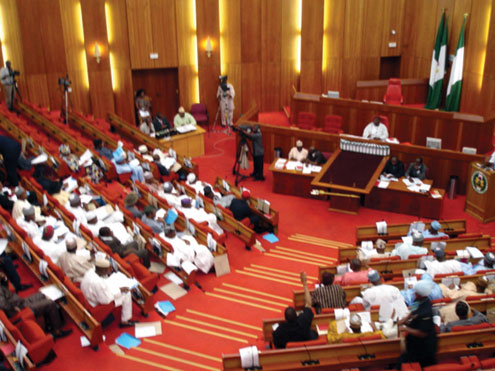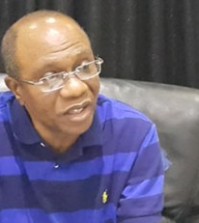N3 trillion: Official Cost of bank bailout – CBN
Over N3 trillion has been spent in resolving the banking crises that have seen 10 banks undergoing rigorous reforms including change of leadership in eight, the Deputy Governor, Financial System Stability, Central Bank of Nigeria (CBN), Dr. Kingsley Moghalu, has said.
The cost includes the N1.725 trillion spent by the Asset Management Corporation, (AMCON) to acquire the non-performing loans of banks in the wake of the global financial crises.
Before then, the apex bank had injected N620 billion to rescue 10 banks at the heat of the financial crises in 2009. Another N679 billion was expended by the Asset Management Corporation of Nigeria (AMCON) to recapitalise the three Bridge Banks last August.
Speaking yesterday during the 30th Anniversary of the Financial Institutions Training Centre (FITC), in Lagos, Moghalu, said unlike other economies where financial stimulus and bailout packages came at huge cost to tax payers, the CBN, banks and AMCON established the Banking Sector Resolution Cost Fund (Sinking Fund) to absorb cost of crises. He said the 24 banks in the country and the CBN have been designated to contribute 0.3 per cent of their total assets and N50 billion per annum to the fund.
“The net financial cost of stabilising the Nigerian financial system sequel to the global financial crises is estimated at N1.725 trillion. However, following the recent regulatory intervention and takeover of defunct Afribank, Bank PHB and Spring Bank by the AMCON and injection of N679 billion to recapitalise the emergent bridge banks, the cost has moved far higher,” he said.
The N1.725 resolution cost represented 5.58 per cent of Nigeria’s Gross Domestic Product of N29.498 billion as at end December 2010. The fund was initially expended by AMCON to buy non-performing loans from 21 banks.
He said that unlike other countries where work of AMCON (bad bank) are limited to banking crises resolution. In Nigeria, the portfolio has been expanded to include recapitalising ailing banks and loan restructuring.
The Deputy Governor, said such role has been clinically and effectively implemented. He said although there have been criticisms against the reforms, but it must be sustained. He insisted that leadership failure rather than global financial crises brought the rescued banks down.
“But as there have been corporate failures, there have also been corporate survivors and leadership and corporate governance has roles to play in all the cases,” he said.
He said FITC has a role to play in sustaining the financial system stability through training and continuous education of bank directors.
He said contemporary history is replete with corporate failures involving institutions that have risen to global prominence and assumed the status of global brands and icons due to their phenomenal successes in the past. According to him, the CBN remains committed to sustaining and consolidating on the gains of the reforms but it is imperative to complement the reforms in other sectors of the economy.
The Sinking Fund is a binding agreement between the banks to contribute three basis points of audited total assets at the end of each year to help the AMCON to pay some of its recovery expenses. It became exigent after the CBN and the banks realised that funds from the management and realisation of the eligible banks’ assets to be acquired by AMCON may turn out to be insufficient to meet the resolution cost of restoring financial stability.
Nation








